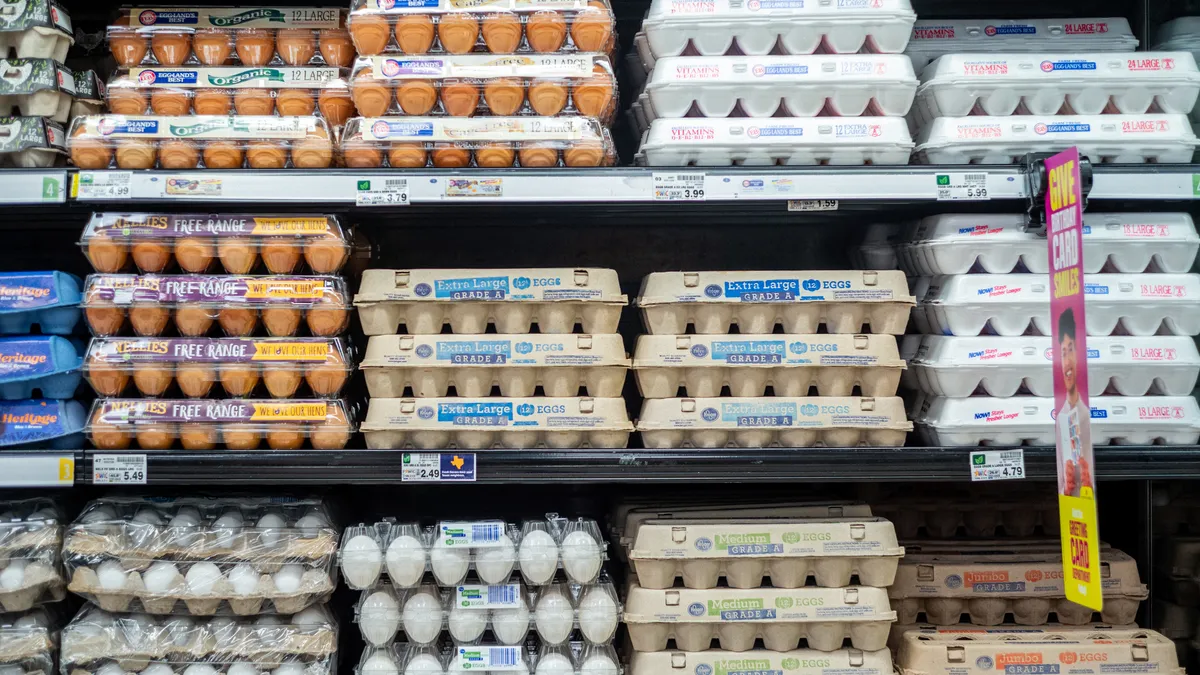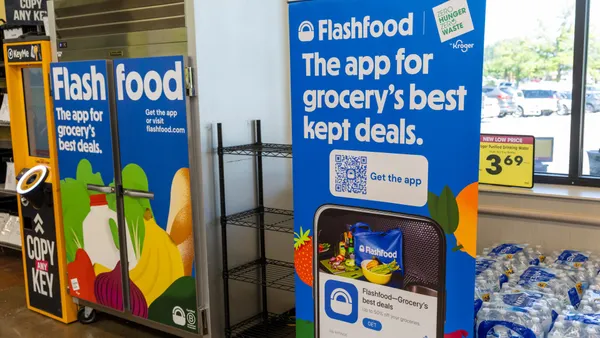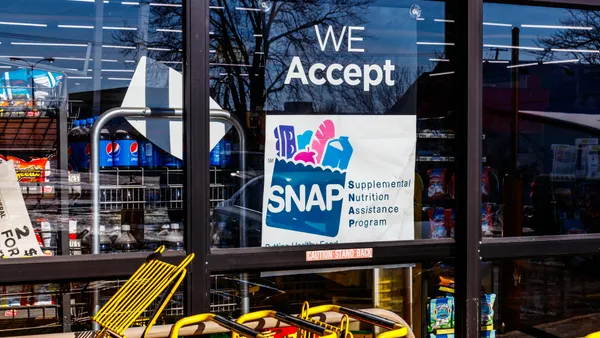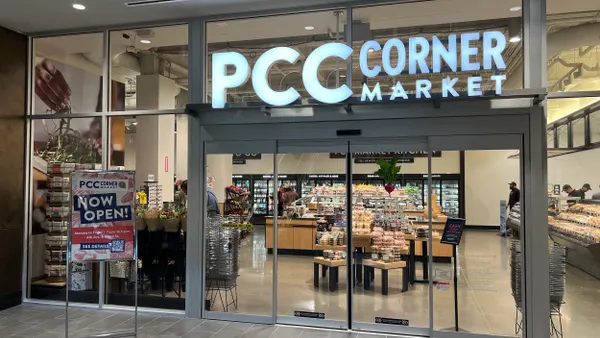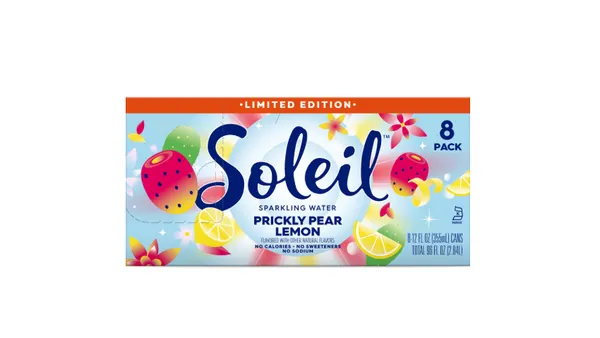The Michigan attorney’s general office is cracking down on Kroger’s egg sourcing.
In a brief letter to CEO Rodney McMullen dated March 23, Jason Evans with the attorney’s general office urged the grocery company to add “clear signage” to let consumers know which eggs are from caged hens and which are not. The letter references a report from Data For Progress, a progressive think tank and polling firm, that noted Kroger switched course on its commitment to only selling cage-free eggs by 2025.
Kroger, which announced the cage-free egg goal in 2016, said last August that it does not expect to reach that goal within that timeline, citing the supply of cage-free eggs outpacing customer demand.
“We will continue to offer a variety of eggs to ensure that affordable, healthy protein options are accessible for all Kroger customers,” the company said in the August update, noting it expects to put roughly $45 million toward a new timeline that has 70% of its eggs (by units/dozens) sold as “cage-free or higher standards” by 2030.
The Data For Progress report claims that more than 40% of Kroger customers are buying eggs from caged hens believing they are cage-free, noting that Kroger’s use of labels, such as “Farm Fresh” and “Grade A” can confuse shoppers.
“Being clear about which eggs are from caged hens is particularly important in Michigan, as Michigan law will prohibit – beginning in 2025 – the sale of eggs from caged hens,” Evans wrote in the letter. That upcoming state ban was signed into law at the end of 2019. Michigan is among several states, including Oregon, Washington and Utah, that have bans on eggs from caged hens, with Arizona joining that list last year.
“Grocery shoppers throughout the state should be able to decipher and trust the advertising in whichever grocer they shop,” Michigan Attorney General Dana Nessel said in a statement. “Grocers must be transparent and honest in their in-store marketing. It is troubling to read reports saying that is not what all customers are experiencing.”
Kroger is not the only major retailer that’s backtracked on its pledges. Food Dive recently noted that Walmart also has taken a step back from its commitment to supply 100% cage-free eggs by 2025. Expensive facility upgrades and machinery have outpaced previous estimates for how much cage-free production conversion would cost, impacting egg producers, Food Dive reported.
Kroger has continued to see revenue from cage-free eggs increase in recent years. In 2021, cage-free eggs accounted for 45.9% of Kroger’s total egg revenue company-wide, up from 41.9% in 2020 and 39.4% in 2019, per the company’s 2022 Environmental, Social and Governance report.
Kroger recently introduced cage-free, carbon-neutral eggs from Kipster Farms under the grocer’s Simple Truth brand.



